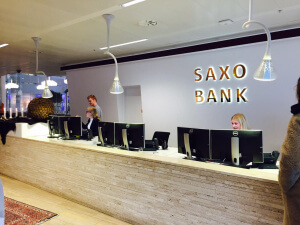Saxo Bank updates institutional clients on LEI code requirements
To comply with the new EMIR and MiFID II reporting requirements, Saxo has to collect valid LEI codes from all corporate clients, legal entities and registered businesses.

Saxo Markets, the institutional division of multi-asset trading and investment expert Saxo Bank, has updated its white label clients on the new LEI (legal entity identifier) requirements. These stem from the upcoming changes to EMIR and MiFID II reporting rules – all corporate entities need to provide their LEI by October 1, 2017.
Under the new requiments, Saxo has to collect valid LEI codes from all corporate clients, legal entities and registered businesses. To learn more about LEI, one may visit the websites of LEI ROC and GLEIF.
In case Saxo’s partner is delegating EMIR reporting to Saxo, the bank will also need to be provided with LEIs on all of the partner clients fitting this definition. If the partners are themselves performing the reporting, Saxo recommends to them to equally obtain all the LEIs of their clients fitting this definition.
It usually takes approximately 1-2 weeks to receive an LEI code after registering. One has to renew the code on an annual basis, but Saxo offers a promo code (SaxoLEI2018) to ensure that the applicant does not need to renew until December 2018.
In order to provide Saxo with an LEI, its partners should update this in Saxo Tools for their clients.
In case the LEI is not provided by October 1, 2017, Saxo warns that it cannot perform delegated third party EMIR reporting for this entity’s underlying clients without LEI.
Saxo Bank has already been actively preparing for the new rules. Earlier this year, it took steps to comply with one particular provision of MiFID II that bans investment companies from receiving and keeping any fees, commissions or other payments in money or in kind from (inter alia) investment funds in connection with the provision of discretionary portfolio management to the customers. This particular rule, known as a ban on IB inducements, came into force on July 1, 2017 in Denmark. Saxo Bank A/S, as well as other Danish companies covered by the rule, stopped paying inducement to IBs providing discretionary portfolio management to the customers or independent advice, as of July 1, 2017. The company said back then that it planned to implement a selection of solutions that enable its IBs to work within certain boundaries or move to a non-inducement fee model.









